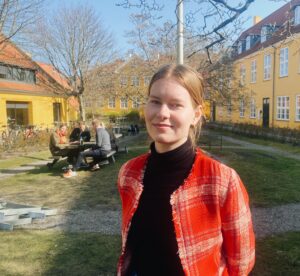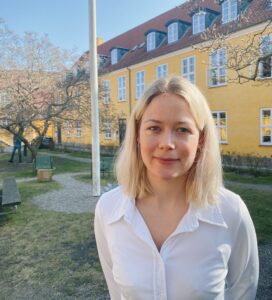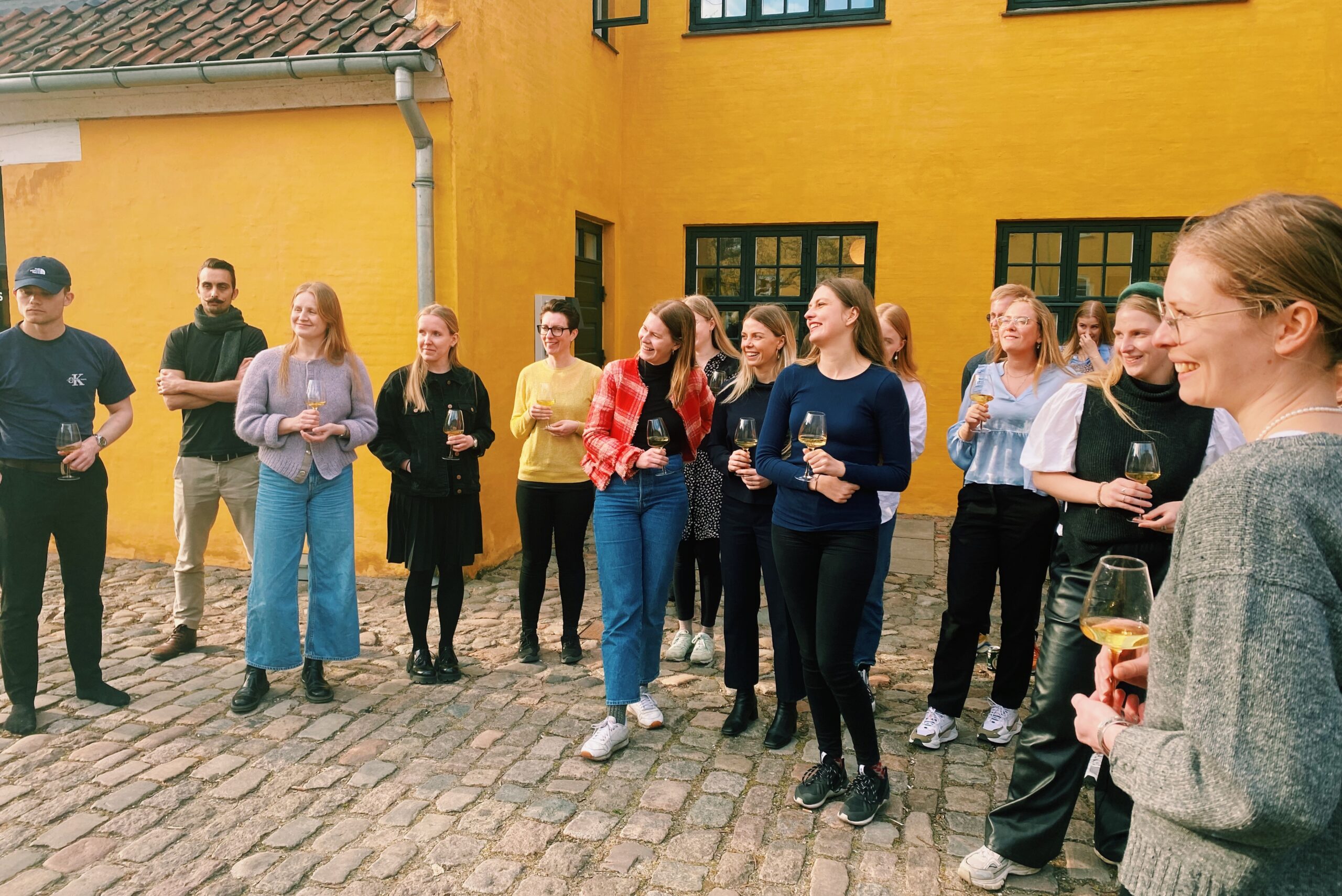VINTERAKADEMI is a recurring bootcamp for students and young professionals engaged with sustainability and the built environment. But what does the initiative mean for the participants? We’ve asked two of them to find out.
At the weeklong, annual VINTERAKADEMI (in English: Winter Academy), students and new graduates from all over the country and from a variety of different disciplines come together to discuss, learn, and work with sustainability in the built environment. During the week, participants are introduced to several relevant actors from prominent institutions within the Danish building industry through talks, case studies, and group work on a given topic.
At the newly finished VINTERAKADEMI 2022, the themes were how we can use the experiences of the past to create a more sustainable built environment now and in the future, what the social aspect means for sustainability, and what role communication and cross-collaboration play in a sustainable transformation. Participants represented a wide range of academic disciplines; from architecture, sustainable cities, engineering, and urban planning, to anthropology and political science.
What does it mean for all these young people to come together to learn from not just the designated experts, but also each other? And how can they use the interdisciplinarity of the group to come to new conclusions?
Emma: ”It’s nice to feel that my competencies are needed as well”
One of the participants we’ve asked to answer a few questions about VINTERAKADEMI is Emma Lorenzen, who studies sociology at the University of Copenhagen. To her it has been a nice surprise to learn that her field of expertise is also sought after in the built environment.
“I always thought it made a lot of sense to combine sociology and urban planning, but I also expected that I had to fight harder to get a say. There has been a lot of focus on the social aspect of sustainability this week, so it’s been a big part of the conversation. I’ve also talked to other people from the social sciences, and how we could contribute to making the social aspect of sustainability more tangible,” says Emma Lorenzen.

The talk and interaction between participants, in general, have been a big part of the experience of VINTERAKADEMI for her:
“The quality of the speakers has been really high, but I actually think that I’ve gained the most from talking to the other participants – small talk after case studies, reflections on the talks, evaluations of the speakers, and stuff like that. It’s good to feel that it’s not just the big experts who have all the answers, it can come from students and new graduates as well.”
This is also encouraging when it comes to taking your seat at the table in discussions on sustainability, says Emma Lorenzen:
“The interdisciplinarity is really a good aspect of VINTERAKADEMI. We can lean into each other and support one another. There is power in knowing that you have people to draw on when you enter a discussion on this topic and that other people prioritize this as well. It can be hard when you’re young to feel like you have a say. Now we have this professional and social bond between us – I was actually surprised to find out how much of a social event VINTERAKADEMI also is. I expected it to be just business, but it’s almost been like a tiny Roskilde Festival.”
Kamilla: “We need to develop a shared framework of understanding”
The second participant we talked to was Kamilla Hansen, who has studied geography and geoinformatics at the University of Copenhagen and works with climate adaptation at the municipality of Hørsholm. To her, an important aspect of VINTERAKADEMI was to think from the perspectives of different fields of expertise and professions:
“A sentence, that has been recurring during the week is ‘that’s not what we usually do’, which I think is quite interesting: there is a normal way of doing things, a standard way of working, and it can feel uncertain to have to change those habits. We might come from different fields of study at VINTERAKADEMI, but we’re all academics, and we share the sense that we need to do something and change everything – but do we actually take the workers and the operation of building processes into account?” asks Kamilla Hansen.

It’s important to her, that we develop a shared framework of understanding so that no one is left behind. That means not just thinking in visions, but also practicalities of the workflow to get everyone on board with the sustainable transition:
“When I work on an idealistic climate vision paper for the municipality I work for, how can I make sure that it is rooted in reality? I think it’s about meeting people and professions where they are. Without the meeting of the minds, we won’t get anywhere. So, it’s about taking little steps, having transparency about what you’re doing, and respect for other people. It’s important that we’re not just sitting in a high tower without a sense of reality, pointing at how other people should do things more sustainably.”
VINTERAKADEMI has also contributed to this meeting of different fields of expertise, and to Kamilla Hansen it means a lot to know, that everyone will take the experience with them and nudge and push the agenda at their respective jobs and schools.
“The network that we have developed here is going to be relevant for many years to come, and we can continue to meet and share knowledge. That’s really important. If you look at it that way, this week is just the beginning,” says Kamilla Hansen.
Read more about VINTERAKADEMI 2022 in this article.
VINTERAKADEMI is initiated by CONCITO and developed in partnership with BLOXHUB and ERIK arkitekter with support from Realdania and Grundejernes Investeringsfond.



